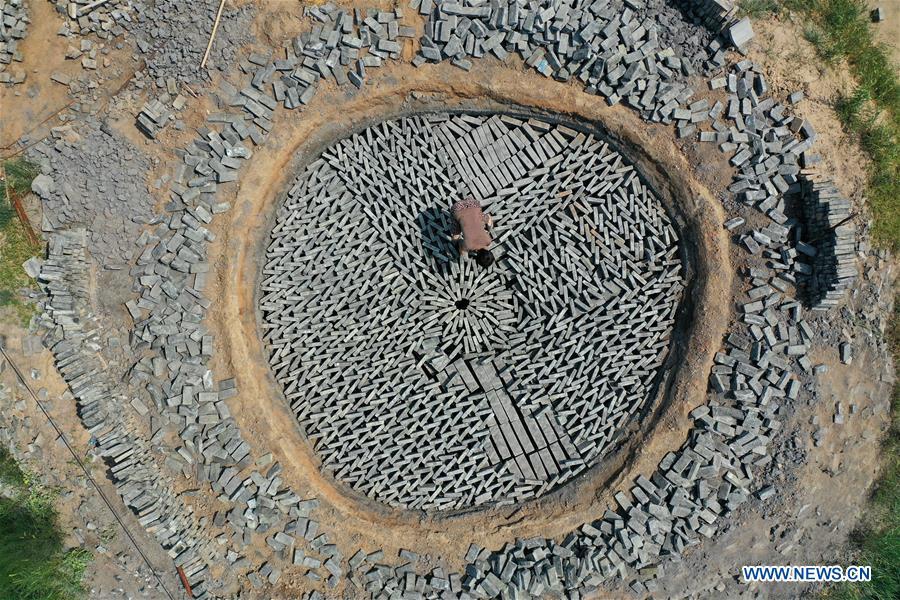
US economy



A consortium consisting of Chinese solar energy Jinko Power Technology Co and France’s EDF won a power purchase agreement with UAE’s EWEC for a 2GW solar power project at Al Dhafra. The project will be the world’s largest solar power plant, & will power 160,000 households.
With an expected production capacity of 2 GW, the Al Dhafra Solar PV Project will almost double the size of the approximately 1.2 GW Noor Abu Dhabi solar plant – amongst the largest operational solar PV plants in the world.

The Noor Abu Dhabi project, which was awarded to Marubeni Corp and Jinko Consortium in 2017, commenced commercial operations in April 2019.
The U.S. government has stepped up efforts to limit Huawei’s role in rolling out high-speed, fifth-generation technology in Latin America’s largest economy. It believes Huawei would hand over data to the Chinese government for spying. Huawei denies it spies for China.

Thailand’s communications conglomerate True Corp signed a 5G commercial contract with China’s ZTE to use the latter’s full range of 5G products and services to help roll out a 5G network in Thailand. True Corp holds 30% of Thailand’s mobile market.
The two countries are set to build ties across a slew of defense areas including hypersonic, electronic and space-based warfare.
In a joint statement, the ministers said they discussed expanding operations in the northern Australian city of Darwin, where US Marines have been rotating in since 2012 under an initiative of former president Barack Obama.
The United States will establish a military fuel reserve in Darwin and the allies will consider exercises there with like-minded countries — a likely reference to Japan and India.
In one step that had been too far, Australia last year said it would not serve as a base for US intermediate-range missiles — widely seen as a way to target China.
Australian Foreign Minister Marise Payne said Australia did not agree on everything with Beijing — or with the United States.
“The relationship that we have with China is important. And we have no intention of injuring it,” she said. “But nor do we intend to do things that are contrary to our interests.”
She said Australia and the United States had a shared interest in an Asia-Pacific region that was free, prosperous and secure and were broadly aligned on issues, including China.
“We don’t agree on everything though. And that’s part of a respectful relationship, is part of a relationship that has endured over 100 years of ‘mateship.’”
“We deal with China in the same way. We have a strong economic engagement, other engagement, and it works in the interests of both countries,” Payne said.
In the first quarter of 2020, the share of the dollar in trade between the countries fell below 50 percent for the first time.
To give an indication of the scale of the adjustment, just four years ago the greenback accounted for over 90 percent of their currency settlements. The share has dropped to 46 percent, tumbling from 75 percent in 2018. The 54 percent of non-dollar trade is made up of Chinese yuan (17 percent), the euro (30 percent), and the Russian ruble (7 percent).

Daniel Ray Coats is an American politician and former diplomat. From 2017 to 2019, he served as the Director of National Intelligence in the Trump administration. A member of the Republican Party, he served as a United States Senator from Indiana from 1989 to 1999 and again from 2011 to 2017.
He argues that the U.S. government’s China policy often serves only its own short-term political interests, while China pursues its foreign policy goals based on a “calculated long-term strategy”. Coates includes many of his own observations in his analysis. He claims that China’s long-term strategy includes an “ambitious foreign policy” that seeks to shift the center of the world economy to Eurasia through the “One Belt, One Road”. China’s strategy also includes besieging the West in science and technology, and achieving overall dominance in areas such as data collection and operating systems.
Coates said that these science and technology covers the artificial intelligence, robotics, aerospace and quantum computing, and China has always wanted to apply these technologies to the military level. China realizes earlier and more clearly than any other country that science and technology will be the decisive factor in this historic battle,” he said.
Coates also discusses how the United States should deal with China, but it seems a bit impotent.
He says things like closing the Consulate General, sanctioning a few officials, adjusting tariffs or sanctioning individual companies will only provoke countermeasures that won’t help in dealing with complex issues.
”In the face of these challenges from China, it is up to the United States to lead other countries and together respond with a united and long-term vision. Above all, U.S. and allied policy must expand the diplomatic and political space for creative and productive approaches to the problem.” In short, Coates’ point was to “bring on allies.”
In addition, Coates also declared that the United States should reconstruct the framework of multilateralism to “restrain” China. Not like the Trump administration today, like to pursue unilateralist policies, in the international community, constantly “withdrawal”, triggering the resentment of countries.
He suggested that the United States should rebuild “cohesive” alliances and multilateral institutions, which must respond coherently and forcefully to China’s long-term strategic vision.
”We all know that only the United States can create these ‘tools’ in the past, when our allies and other ‘like-minded’ countries are beginning to realize that China is a common threat in the future, they will increasingly accept ‘enlightened leadership’ from the United States.